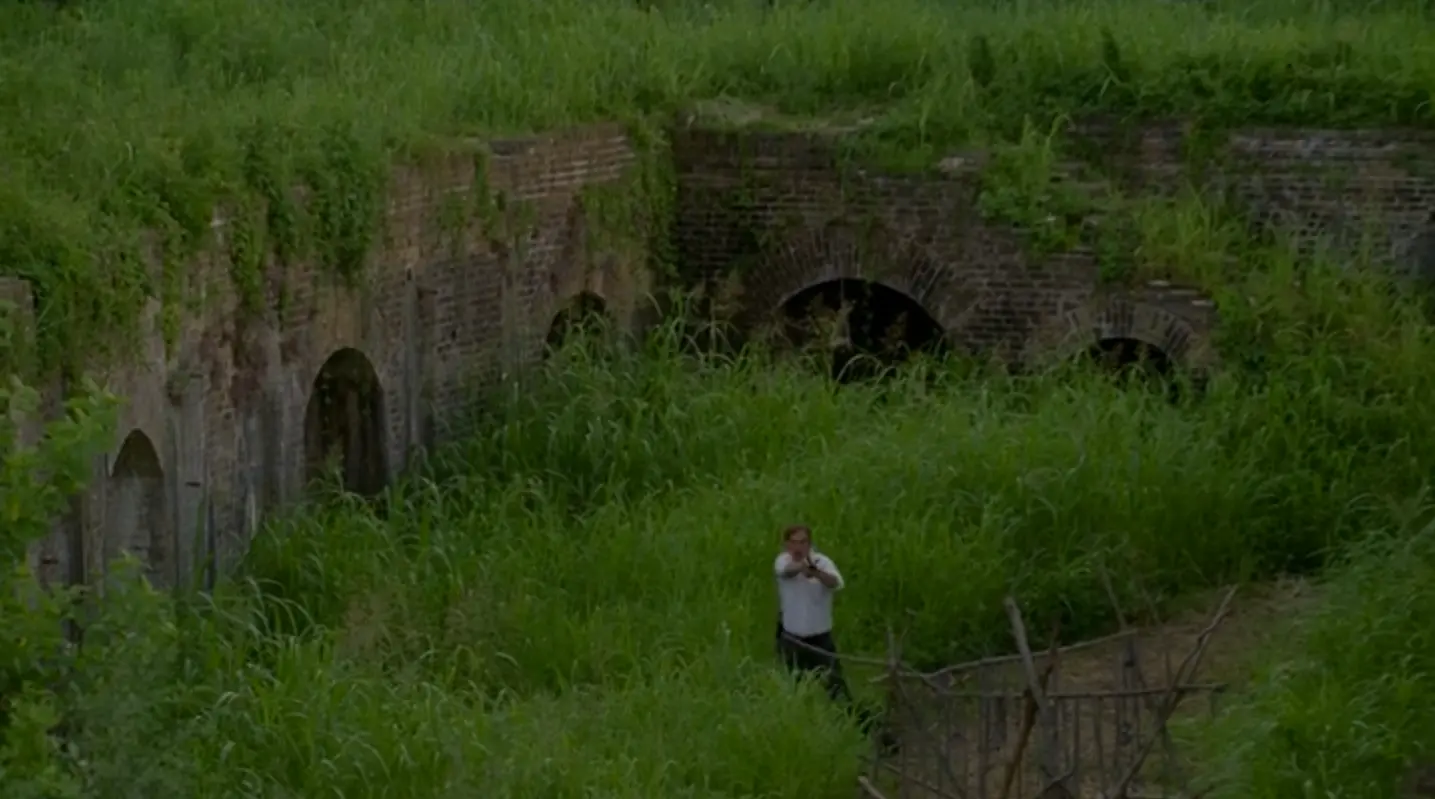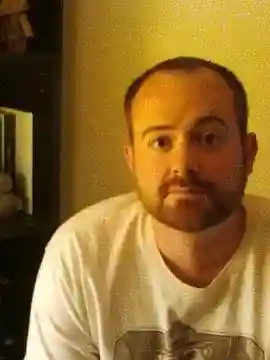Marty Hart and Rust Cohle are the new poster boys for many things: obsession, nihilism, turning empty beer cans into little aluminum creeper men. If you look up, they're even poster boys for this column, surely the most significant accomplishment yet for these backwoods Louisiana cops.
Among all other things, however, Marty Hart and Rust Cohle — as well as True Detective creator Nic Pizzolatto and the dark, twisted fantasy he created for HBO — are the new poster boys for the weird and the horrific.
This is not some groundbreaking revelation. Outside of Breaking Bad and Game of Thrones — both similar in their themes and cult-like fanbases — I can't recall reading as much philosophical and metaphysical dissection of a particular television show since Reddit became the front page of the Internet. Everywhere you looked, every web page you stumbled upon, someone was writing about this wild animal, this demonic creature that Pizzolatto unleashed on American pop culture.
Like all demons, True Detective was born in the belly of a beast. I know this because I ventured deep into the cavernous depths where this beast was birthed, to find the home of Pizzolatto's weird ass tale of madness.
I logged on to Google and in the search box typed T-h-o-m-a-s-space-L-i-g-o-t-t-i, only I didn't complete the full query. Couldn't. Didn't need to thanks to a kind passerby, a wizardly wizard who waved his magical wizarding stick and showed me all the Thomas L-Is in this deep, dark database. Yes, Google's auto-complete feature showed me the way to the beast's birthplace.
Now, a confession: Before I started slobbering over True Detective — okay, really just McConaughey, but, you know, come on — I'd never heard of Thomas Ligotti, hence my request to Google for its wizardry. Honestly, Ligotti sounds like he runs drugs for one of the Five Families or sits in the back room of the Bada Bing! playing cards with Tony Soprano. But Ligotti is no mobster (as far as you know). Instead, he's the best kept secret in contemporary horror fiction (according to The Washington Post) and the greatest living horror/weird fiction writer (according to the unbiased Ligotti.net).
While primarily known as a fiction writer, Ligotti's nonfiction book, The Conspiracy Against the Human Race, is a major reason True Detective exists. Conspiracy is best described as a philosophical dissertation. Its words are thought-provoking, carefully chosen, and utterly terrifying. Remember that quote from Rust Cohle, in the first episode, when he rants about human consciousness being "a tragic misstep in evolution" and then humanity going all Jonestown on itself and committing mass suicide because it'd be the honorable thing to do?
This is the tragedy: Consciousness has forced us into the paradoxical position of striving to be unselfconscious of what we are — hunks of spoiling flesh on disintegrating bones.
Thomas Ligotti, ladies and gentlemen, the doppelganger for Mr. Rust Cohle.
There are other doppelgangers in this story too. Or, a better way to put it: there's a royal bloodline of weird fiction writers, beginning with Ambrose Bierce.
A journalist turned short story writer, Bierce's major contribution to this story is the fictional city of Carcosa, a major point of mystery and intrigue in True Detective and a trending topic in the heads of fans of the show from pilot to finale.
Bierce introduced Carcosa in his 1886 short story "An Inhabitant of Carcosa," which follows a man wandering through the wilderness pondering the philosophical questions about life and death before he realizes he's — spoiler alert — already dead and walking through the ruins of the ancient city of Carcosa.
Sound familiar? An ancient city, a man wandering through its wilderness, a philosopher of sorts, the mysteries of life and death always running through his head, the answers eluding him until the very end...

Then, there's Robert Chambers, the writer who's been directly tied to, linked to, implicated in, and married to the mythology of True Detective.
It is Chambers who penned The King in Yellow, a book of interconnected short stories about a fictional play that's the literary equivalent of that video in The Ring, turning those who read it into possessed demons who crawl backwards, leaving them with contorted faces. Or something, I don't know.
The term 'Yellow King' is muttered throughout True Detective by heroes and villains alike — along with 'black stars' and 'twin suns' and spirals and Carcosa again — and turns out to be more of a MacGuffin than anything else. The mere mention of the so-called Yellow King spiked a massive amount of interest in the plot — Who killed Laura Palmer Dora Lange? — among viewers, even if no one was revealed to be yellow in color or king in status.
But Chambers's successor was indeed a king. His name was Howard Phillips Lovecraft, and if Bierce and Chambers were ancient royalty, Lovecraft was Henry VIII, the bloodline's most badass ruler.
Lovecraft, of course, is also the czar of weird fiction and the inventor of cosmic horror. When he created his now-famous Cthulhu Mythos, he did so thanks in large part to Chambers's yellow king and Bierce's Carcosa.
It's in Lovecraft's alternate universe — one that's pulpy and macabre, but steeped deeply in reality — that the genre of weird fiction grew. If Bierce birthed the genre and Chambers coddled it, it was Lovecraft who took it to wild parties with booze, bongs, babes, and blood.
While True Detective is now the poster child for the weird fiction genre, it's also ignited interest in the works and authors that came before it. Credit Pizolatto, who's spoken to the direct influences of guys like Bierce, Chambers, and Lovecraft, as well as others, in interviews across the Web.
The best way to measure the impact of True Detective on the weird fiction genre in today's culture is not in television ratings or social media conversation, however. It's by analyzing consumerism.
Take Pizolatto's debut novel Galveston. Although closer in theme and genre to Cormac McCarthy and our friend Joe Lansdale than someone like Lovecraft, it's been in and out of stock on Amazon since True Detective hit the airwaves. Chambers's The King in Yellow has shot to the top of multiple bestseller lists. And I swear I saw Ligotti's Conspiracy in stock on Amazon one day, then out of the stock the next, and it's retained that status for weeks.
It's not surprising that a television show and some —okay, tons of — media coverage could spawn such cultural hysteria. I mean, a graded copy of The Walking Dead no. 1 sells for well over $1,000 on eBay, so there's precedent here.
But The Walking Dead is zombies, man. It's zombies and it's apocalyptic and it's zombies. True Detective is true philosophy, and its themes and images and the words that come from the mouths of its characters are more thought-provoking, more carefully chosen, and more terrifying, because, like its predecessors, it's steeped deeply in reality, so much so that Carcosa is now the desired destination for those of us seeking refuge in the truth about humanity.

About the author
Ryan is currently at work on his first novel while also prepping the launch of a podcast called "the 45 minute radio hour."








